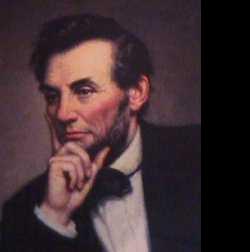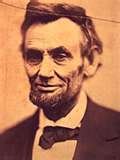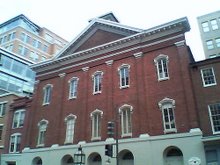

Lincoln ranting and swearing? That’s hard to believe. And guess who drove him to it? George McClellan.
Lincoln had issued a war order calling for a movement of all land and naval forces on Washington 's Birthday, February 22. What a nice way to celebrate that day.
But instead of a frontal attack at Manassas Junction, McClellan wanted to float his army down the Chesapeake Bay, and march overland to Richmond before the Confederates could block him. Only trouble was, the canal boats carrying the men through a lock on the Chesapeake and Ohio Canal were six inches too wide. When McClellan discovered the error, he did nothing.
According to journalist William O. Stoddard, Lincoln was beside himself. (Read all about it in Daniel Mark Epstein’s Lincoln’s Men). Addressing McClellan’s father-in-law, Lincoln yelled "Why in hell and damnation, General Marcy, couldn’t the General have known whether a boat would go through that lock, before he spent a million of dollars getting them there? I am no engineer but it seems to me that if I wished to know whether a boat would go thru a hole, or a lock, common sense would teach me to go and measure it."
I have this vision of McClellan getting off the boat with a tape measure, stringing it across the Chesapeake and Ohio canal lock and calling out "Six inches too short. Oh well."
But did George Washington ever lose his cool? Oh yes, and right on the battlefield. When Major General Charles Lee lost his nerve in pursuit of British troops at Monmouth Courthouse, Washington gave him a virulent "tongue lashing" right on the spot, questioning his loyalty, character and bravery. According to one soldier at the scene, he swore at him until the "leaves on the trees shook."
So what does all this say? Both men were low on patience when it came to commanders hesitating under pressure, but while Washington questioned Lee’s loyalty, Lincoln never did question McClellan’s. He only asked to borrow his army.
Happy President’s Day to you.









1 comment:
Like your blog. The more I read about Lincoln, the more interesting he becomes...
Post a Comment